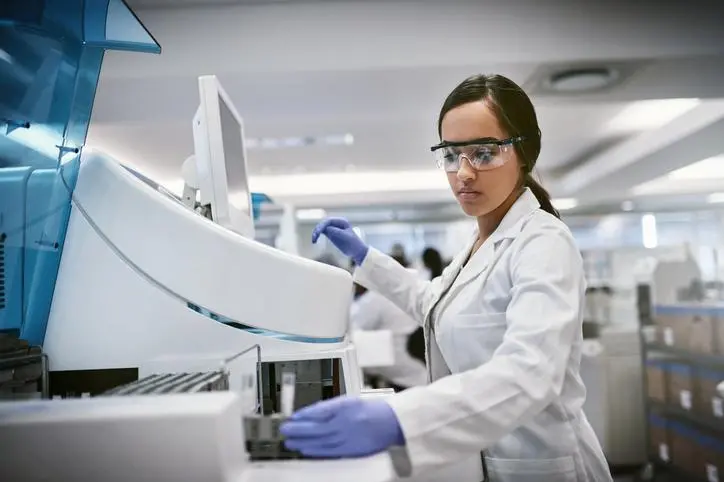PHOTO
Bahrain - Private health laboratories in Bahrain could soon be permitted to conduct fully-fledged tests for the coronavirus disease (Covid-19), it has emerged.
Three such labs, which have been given provisional approval by the National Health Regulatory Authority (NHRA), are gearing up pending final licensing, the GDN has learnt.
The GDN reported on May 14 that the authority had approved nine private facilities where Covid-19 tests could be conducted, for a fee.
ServiceThese included Ibn Al Nafees Hospital, Al Kindi Hospital, Royal Bahrain Hospital (RBH), Bahrain Specialist Hospital, Al Salam Specialist Hospital, American Mission Hospital (AMH), Dr Tariq Hospital, Noor Specialist Hospital and Awali Hospital.
However, these hospitals can offer the service only to the regular public who are asymptomatic and for whom the conditions of public testing do not apply.
Meanwhile, Thyrocare Gulf Laboratories is one of the firms which has secured a provisional licence, and is procuring the equipment.“We applied and received the provisional licence, and the lab infrastructure is ready,” managing director Akshay Jain told the GDN.
“We are waiting for the equipment after which the Public Health Directorate will validate our results prior to receiving the final licence from the NHRA.
”CriteriaHe underlined the need for private labs to be allowed to conduct the tests as this would help in catering to a part of society which may not be the government’s priority.
“Governments around the world are stepping up testing capabilities, and based on the local condition each government has set up specific criteria.
“There is a set of people who don’t fall under these criteria, and that’s where the private sector comes in.“By licensing private labs, without diluting the government’s efforts, the private healthcare sector can satisfy the need of that particular section of society.“For example, a company might want to test its employees for the sake of safety, but this may not be the government’s priority; this is where the private sector comes in.
”AMH chief operating officer Arun Govind also supported the idea, underlining that the private sector could complement the government’s efforts.“We are also ready to have our lab do the tests, and will procure consumable equipment only after the approval,” he said.“I would highly recommend allowing the private healthcare sector to conduct fully-fledged tests, unlike the current practice of just collecting swabs; it can support government efforts in identifying and isolating cases which is important to curb community spread.
”KIMS group executive director Jacob Thomas added that within a week of the NHRA granting permission, nearly 200 people had presented themselves at the RBH in Zinj to get tested.“The approval of the private health labs for tests is welcome; this will help in more accessibility for the public as well as address the fear of people going to public hospitals.”ChargesHospitals are doing the molecular test or RT-PCR, which is approved by the Health Ministry.
Real time reverse transcription – polymerase chain reaction (real time RT-PCR) is a nuclear-derived method for detecting the presence of specific genetic material from any pathogen, including a virus.Current testing charges differ from hospital to hospital which collect the swabs that are sent to the Public Health laboratory; results are released after 24 hours.
Apparently, every approved hospital is provided with only 100 kits a week to do the swab tests. RBH charges BD50 per person for the test, while at the AMH it is BD40.
“We received 200 asymptomatic people who came voluntarily to get tested and we do the RT-PCR test, which is approved by the Health Ministry,” added Mr Jacob.“To those who are positive, we ask them to stay isolated while the 444 team will further reach out to them.”
© Copyright 2019 www.gdnonline.com
Copyright 2020 Al Hilal Publishing and Marketing Group Provided by SyndiGate Media Inc. (Syndigate.info).





















